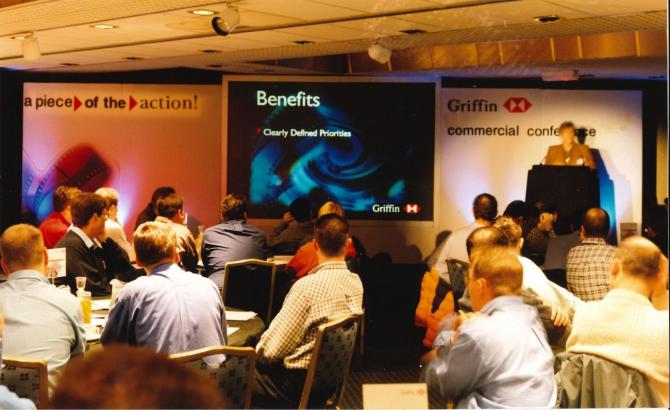Creating An Event Content Strategy

At Apex, luckily, help is at hand. They’ve been helping clients to develop effective event content strategies for over 30 years.
Below are some of the top tips to help you crack the content code at your next event to make sure you deliver those all-important communications in a way that informs, impresses, entertains and motivates.
- Understand your audience
Who you want to attend is vital to pulling off a successful event. How you can reach out to potential attendees in new and absorbing ways if you don’t know who they are and what will appeal to them?
To be able to do this, you must consider creating ‘buyer personas’. This is a tried and tested marketing approach. These can help you to get under the skin of your visitors by giving you a deeper insight into their challenges, wants and needs. You can then craft an event that appeals directly to them
- Understand what you want to achieve
Before you start creating any content you need to know what impact you want to your evnet to have. What are your goals? What do you want attendees to take away from your event? How can you address their needs?
It always pays to start with a strategy whether you’re organizing a conference, award show or roadshow.
- Identify hot topics
Identifying subjects that are of real interest to them are the best way to attract attendees to your events. By looking at the industry media, listening to your sales team and other experts and searching social media to find out what people are talking about.
You could also reach out to your guest list to find out what topics resonate the most with them. If people are not talking about a subject, they probably won’t be interested in finding out more about it.
- Identify what channels to use
It makes sense to share your content on those platforms that will drive the most engagement. Don’t be afraid to experiment to find out what works and what doesn’t.
Video can be a great tool when it comes to event content; helping you to increase the size of your audience by streaming live sessions. Alternatively, footage from a previous event can be used as a marketing tool for future sessions, and you can use video clips to breathe life into your ongoing content such as e-newsletters and blog posts.
- Find impressive speakers
Hiring a professional speaker is a great idea if you’re planning an event. And, where maximum impact is needed, a celebrity can help to wow your guests and add kudos.
- Mix up the event format
People go to events for many reasons. But, most often the want to generate and strengthen relationships, learn something new, and discover sense of purpose. They want to come away with new ideas and think about things differently.
- Create shareable content
In our connected online world, merely going out for a few drinks can be turned into an ‘event’; with people using social media to capture the moment and share it with thousands of followers.
Look at what you can do to take your event beyond the conference hall. Create an official hashtag to promote your event and encourage others to tag their content. Share images taken by yourself and others to amplify your message. Tag keynote speakers, attendees and organisations at your event into any social media posts.
- Create immersive content
One way to look for ways to construct compelling, multi-sensory experiences that evoke genuine emotions from attendees is by using the power of VR and AR.
Today’s event attendees are looking for experiences that are experimental and/or uniquely memorable. Look at how you bring VR/AR into your event content marketing strategy. For example, at a recent food and drink festival in Singapore, visitors were provided with a VR headset, earphones and a dram of dram of whisky before being transported to Scotland for multi-sensory tour of the Glen Ord distillery.
